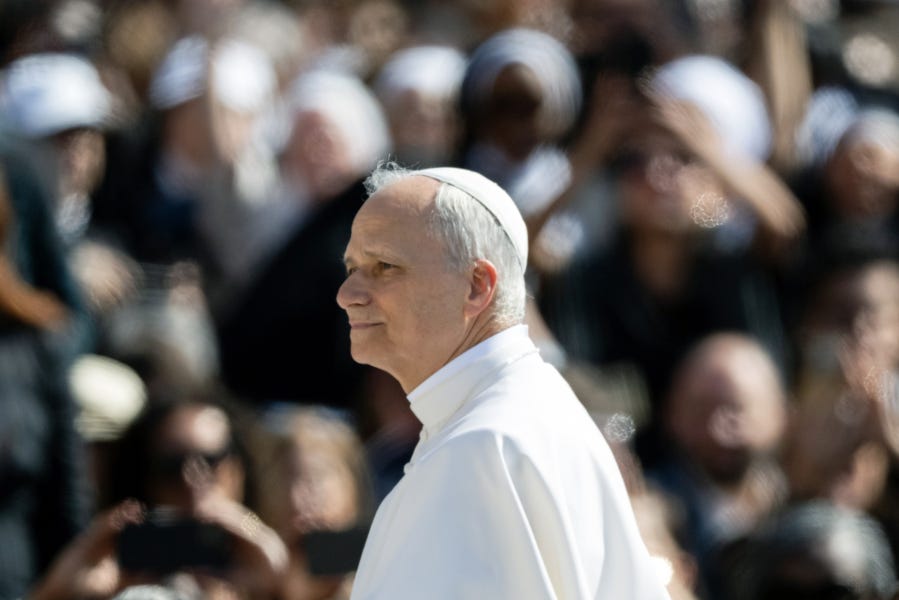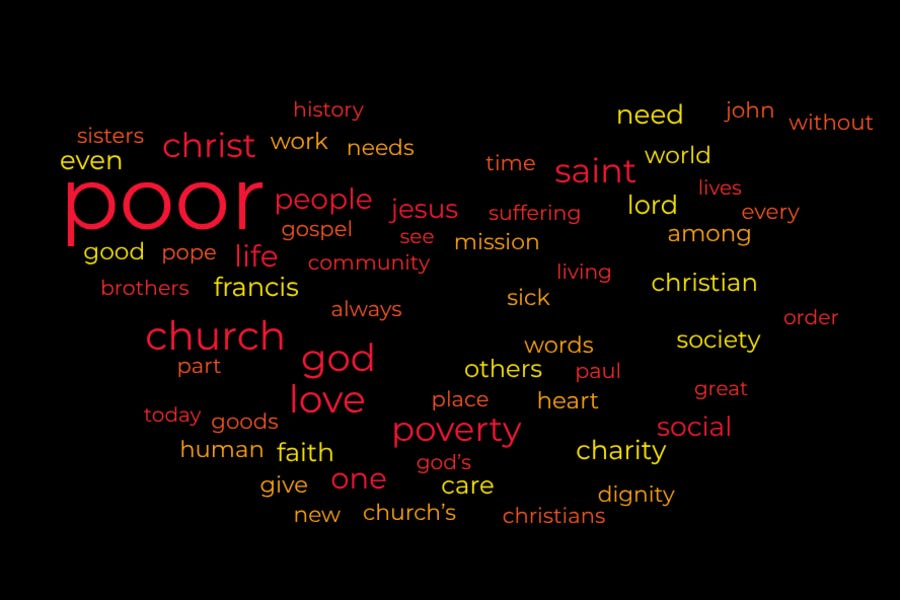‘Dilexi te’: A brief guide for busy readers
Description
Pope Leo XIV published Thursday the first apostolic exhortation of his pontificate, an appeal for renewed dedication to serving the poor and relieving poverty.

The approximately 20,000-word text Dilexi te (“I have loved you”), issued Oct. 9, follows Pope Francis’ similarly titled October 2024 encyclical Dilexit nos (“He loved us”).
What’s the genesis of the new document, dedicated to “love for the poor”? And what does it say?
Here’s a brief guide for busy readers.
What’s the background?
Dilexit nos, Pope Francis’ fourth and final encyclical, focused on “the human and divine love of the Heart of Jesus Christ.” The widely acclaimed text offered a kind of Christological coda to Francis’ 2015 encyclical Laudato si’, on the environment, and 2020 encyclical Fratelli tutti, on human fraternity. Dilexit nos traced the history of devotion to the Sacred Heart and proposed it anew to 21st-century Christians.
Before Pope Francis died on April 21, 2025, he set in motion preparations for a new document, this time dedicated to love for the poor.
The first indication that his successor, Pope Leo XIV, had taken up the project and decided to release it as an apostolic exhortation came on Sept. 10, when Reuters reported that the U.S.-born pope was poised to publish a “high-level document” that would “signal continuity with his predecessor Pope Francis and focus on the needs of the world’s poor.”
An encyclical is considered the highest level of papal teaching, while an apostolic exhortation is typically seen as the second-highest level. Popes often issue exhortations following assemblies of the Synod of Bishops, a permanent institution established by Pope Paul VI in 1965. But Pope Francis, for example, chose to set out the program for his pontificate in an apostolic exhortation, 2013’s Evangelii gaudium.
On Oct. 1, the Italian website Silere Non Possum shared further details about Pope Leo’s first major document.
It said: “Work on this text had already begun during the pontificate of Francis, when Msgr. Vincenzo Paglia [then-president of the Pontifical Academy for Life] inserted long excerpts from one of his books, with almost no mediation.”
“After the death of his predecessor, Leo XIV nonetheless decided to carry the publication forward, considering the subject to be of pressing relevance, but he asked the Dicastery for the Doctrine of the Faith and the Secretariat of State to undertake a thorough revision of the text.”
Dilexi te is not the first papal document to be “the work of four hands” — that is, a collaborative effort between two popes. Pope Francis’ first encyclical, Lumen fidei, built on a text drafted by his predecessor, Benedict XVI.
On Oct. 4, the feast of St. Francis of Assisi, the Vatican announced that Pope Leo had signed the document. He did so in the presence of Archbishop Edgar Peña Parra, the Secretariat of State’s Sostituto for General Affairs. Vatican watcher Rocco Palmo noted that Leo XIV wore a red mozzetta and stole — unusually formal dress — for the signing of his first major text.
A video of the occasion revealed the final lines and contents page of the Italian edition of the document.
Dilexi te was published on the feast of St. John Henry Newman, whom Pope Leo will proclaim a Doctor of the Church Nov. 1. Newman is not cited in the exhortation, though he displayed a notable devotion to the poor in the post-Industrial Revolution city of Birmingham, England.

What does it say?
The exhortation is divided into 121 numbered paragraphs and five chapters. At around 20,000 words, it is considerably shorter than Pope Francis’ exhortation Evangelii gaudium, which was roughly 50,000 words. The average person should be able to read Dilexi te in around one and a half hours.
In a brief introduction, Pope Leo reflects on the exhortation’s title, “I have loved you,” noting that the quotation from the Book of Revelation (Rev 3:9) is a declaration of the Lord’s love for the embattled early Christian community. He says the phrase also “reflects the inexhaustible mystery that Pope Francis reflected upon in the enc





